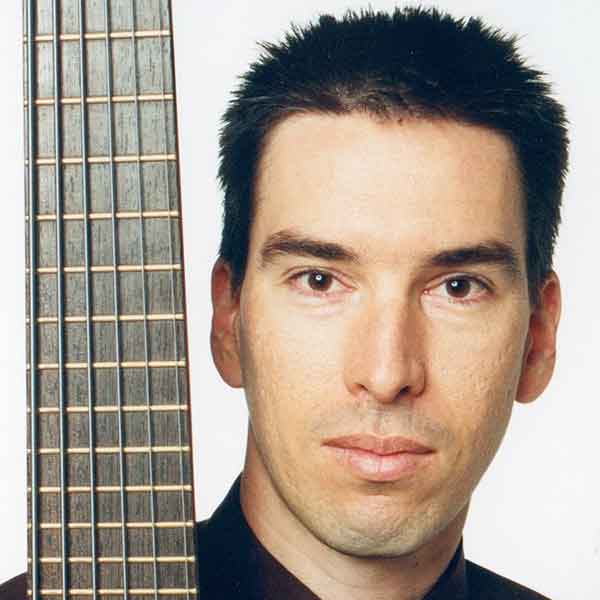Artist Interview: Jonathan Dimond & The Jewel Of India

Words: Matt Innes
The journey of multi-instrumentalist Jonathan Dimond has taken him from his hometown of Brisbane to Boston and the far reaches of India in pursuit of a beautiful musical union.
Commanding control of the six-string electric bass, trombone and tabla, Jonathan has brought together his foundations in Western classical and jazz with the intricate compositions of Northern Indian classical music.
It has been a path he has trod since first becoming enamoured with the rhythms and improvisational possibilities of Northern Indian classical music in the early ‘90s.
“When I was an undergrad college student and saw my first full-length classical concert in the north Indian style, I literally saw the tabla and I thought ‘I want to be able to do that’,” Jonathan explains.
“That influenced my decision of post-graduate course and location; I travelled around and researched different places and ended up in Boston at the New England conservatory where there is a north Indian contingent to the faculty and a direct connection back to Pune in India, which is where I ended up training after that.
“In short, it was simply the emotive sound that drew my attention; already being a professional musician on other instruments, I saw percussion as being a great compliment to what I did playing brass and electric bass. The rhythmic schema, as a composer and improviser, was fascinating to me and that’s how it all began.”
Jonathan’s latest exploration into blending his jazz and classical Indian tendencies is a trio called Tripataka with fellow multi-instrumentalists Adrian Sheriff and Adam King, and last year they released their debut album ‘Yakiya’.
“Tripataka features our likes [sic] of diverse music from other traditions and cultures, sort of set in a western European and African-American jazz context I suppose you could say,” he says.
“Having studied certain traditions quite deeply over a number of years, we’ve found that these have seeped into our creative voice really quite intuitively. The object of ‘Yakiya’ was for me to make a debut album to document compositions that we’ve written over the previous years, so it’s a ‘where-we’re-up-to-now’ kind of recording. We’ve got quite a lot of repertoire that is unrecorded and we’re keen to put that on a CD too sometime.”
Jonathan goes on to say that his work with Tripataka is a continuation of the work he established with his Loops Contemporary Ensemble on their two albums ‘Recursion’ [1999] and ‘EK!’ [2001].
“Listeners would definitely hear elements that connect Tripataka these days and Loops from those days,” he says, “not in my voice but in the voice of John Rogers and Jamie Clark particularly, the guys that contributed to the compositions and improvisations on those records.”
With each subsequent project, Jonathan builds on the one before in a process of perpetual evolution that defines his career as much as it does his own signature, hybrid style and sound.
“There is definitely a traceable link,” he says, though credits the distinct personality of each of his ensembles to the select cast of players with whom he chooses to work.
“Certainly it’s the people that make the music and [Loops] was a different band of people. “It’s not just instrumentation but also different personalities, different experiences and backgrounds. It was a fertile ground for learning about this music and it seeping in to what was already our improvisations and jazz voice.”
Though Jonathan does still perform live, at this stage of his career he says he is focussing more on teaching and working on projects that he is truly passionate about rather than playing just for the sake of it.
“I’ve done my gigging in my earlier life and doing everything that came my way but I’ve had the fortune of being able to focus mostly on creative projects that I really want to do. So I’ve been working on my creative voice and my composition with my improvisation and my knowledge of traditions around the world.”
-
Posted In:
- Artist News
